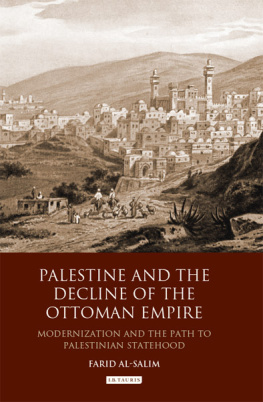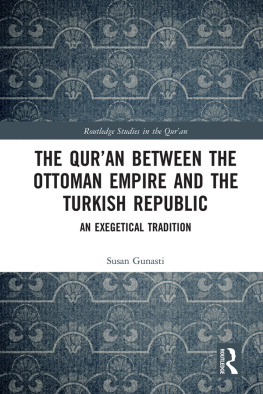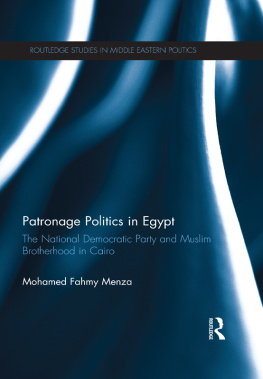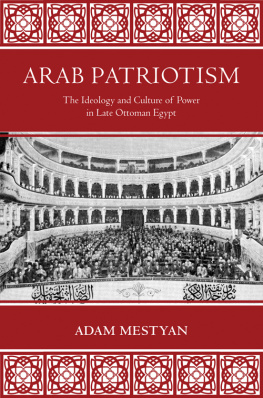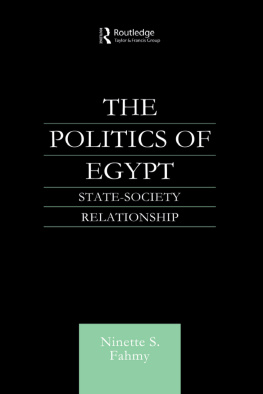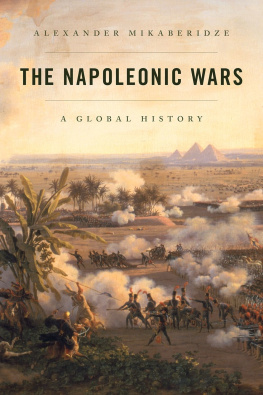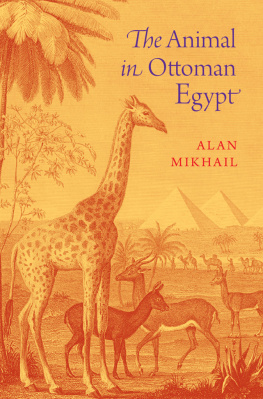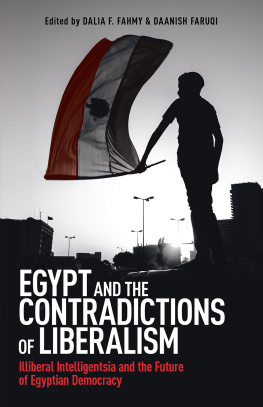First published in paperback in 2002 by
The American University in Cairo Press
113, Sharia Kasr el Aini, Cairo, Egypt
420 Fifth Avenue, New York, NY 10018
www.aucpress.com
Copyright 1997 by Khaled Fahmy
All rights reserved. No part of this publication may be reproduced,
stored in a retrieval system or transmitted in any form or by any means,
electronic, mechanical, photocopying, recording or otherwise, without
the prior written permission of the publisher.
Dar el Kutub No. 16706/01
ISBN 978 161 797 237 9
Printed in Egypt
Frontispiece: Troupes de nizam gyptien [Troops of the Egyptian army], by Prisse dAvennes, reproduced in his Oriental Album (London: Madden, 1848)
Although this book is a study of the army that was founded in Egypt in the first half of the nineteenth century, it does not offer a straightforward account of military history. While dealing with Egypts history during the reign of Mehmed Ali Pasha (180548) by closely studying the army the Pasha founded midway through his long career, it does not follow the generals and officers of this army whilst they trained their men in camps, commanded their troops in battle, or basked in their military victories. Rather, this is a book that is primarily interested in the men who did most of the dirty work of this army, those thousands of Egyptian peasant-soldiers who were conscripted to serve in this army: it follows the soldiers from the time they were recruited, to the time they were sent to the training camps, then to the bloody sites of pitched battles, and finally back to their barracks where they recuperated from past battles and prepared for future ones.
The purpose of following the soldiers of this army so closely is not only to document their unprecedented experience and to check their reactions to what were novel and unfamiliar practices and institutions; it is also, and primarily, to check the validity of the common belief that this army was instrumental in raising Egyptian national consciousness and, indeed, in founding modern Egyptian nationalism specifically by giving these thousands of men the opportunity to bear arms and to defend their nation, a right that they were denied for centuries, if not millennia.
By closely studying this army how it was fed, supplied, and medically cared for, and more importantly, how its soldiers were conscripted and trained, how they reacted to their officers commands, and how they resisted the military authorities this book argues that this army was, indeed, instrumental in founding the modern Egyptian nation. This it did, though, not by enlightening Egyptians regarding the essential truths of the nation, but by instituting novel practices of surveillance, control and management that radically altered the nature of the government in Cairo and fundamentally changed the manner in which it dealt with the Egyptian population. This army was also a crucial element in changing the ethnic and linguistic configuration of Egypts middle and upper classes in a manner that unwittingly gave rise to nationalist sentiments among the soldiery who were mostly Arabic-speakers and who resented being ruled and dominated by a Turkish-speaking military/bureaucratic elite.
This book, then, is not a biography of Mehmed Ali; it does not follow him from the time he arrived in Egypt in 1801 till his death nearly half a century later, tracing his wonderful deeds; nor does it give an account of this long period as if seen from his perspective. Rather, its subject is the army he founded and the men who fought in it. Instead of looking at the army as the national institution that gave those conscripts the right to bear arms and to defend their nation, or of writing its history in a manner that the Pasha himself would have liked, this book sees it as an institution of power that forced these tens of thousands of men to carry arms and to fight for Mehmed Ali and his family, and in the process changed the nature of Egyptian society and affected the lives of the men who served in it. The book tries to investigate how these men resisted and/or accommodated this most powerful of the Pashas institutions, an institution which was unrivaled in the way in touched their bodies and sought to control their minds.
Besides being a study of nationalism and nationalist historiography, therefore, this is a book on power and resistance. Looking at the army as the modern institution of power par excellence this book attempts to see how power with its modern manifestations and institutions is perceived, accommodated and resisted by its subjects. While finding Michel Foucaults notions of power useful and insightful, this book critiques a particular reading of his work that stresses the monolithic nature of the institutions of power and accepts the inevitability of its forms. Instead of an impressive and consistent picture of how modern power objectifies its subjects, what is offered below is an attempt to present a more complex, and intentionally more blurred picture of power, one that can incorporate fractures, dissonance and resistance. By highlighting the small acts of defiance and resistance undertaken by the soldiers in this army, the intention is to undermine the impressive representations of power and its unceasing desire to silence its subjects. These small, every-day acts of resistance, while not grand or heroic, were still effective in challenging the attempts of power to control and manipulate the soldiers lives and bodies, and alarmed the military authorities precisely by showing them that, through these small acts of resistance the soldiers managed to distance themselves from the Pasha and his grand projects.
This obviously leads to the question of whether it is feasible to write a history of an institution of power in a manner that not only avoids reproducing its own narrative but which can also incorporate the dialog that it constantly has with resistance. Given that the overwhelming majority of the people with whom this book is concerned were illiterate and did not leave behind written accounts which could inform us of what it was like to be objectified in this insistent manner, the question is whether it is still possible to include them as subjects and not merely as objects of power. Fortunately, the documents that this book relies upon made possible the incorporation of the soldiers perspective in narrating the history of Mehmed Alis army.
While some of the British Foreign Office documents housed in the Public Record Office, London, were of some value in understanding how the army functioned, these offer mostly an outsiders view of the events and personalities touched upon in this study and, therefore, they have been used only minimally. Similarly some accounts by contemporary travelers and military observers are used, but again only to give further descriptions to material gathered elsewhere. More substantially, this book relies on material collected from the Egyptian National Archives and, to a lesser extent, from the Egyptian National Library, both in Cairo. Broadly speaking, these are of three different kinds. On the one level, there are the numerous letters and regulations issued by the Pasha and his top officials. These include the correspondence between Mehmed Ali and the Commander-in-Chief of his forces, his son Ibrahim Pasha, letters to and from the Sublime Porte and various notables in Istanbul, as well as the numerous letters of the top officials issuing regulations to make sure that the army was well trained, well fed and regularly paid. The various military laws and training manuals which were the earliest publications of the Blq Press and which are housed in the Egyptian National Library make up the second group of contemporary documents that this study relies upon. In contrast to the very monolithic picture of power that comes across from reading these sources, the Archives, fortunately, also contains very valuable information in the form of the journals (



